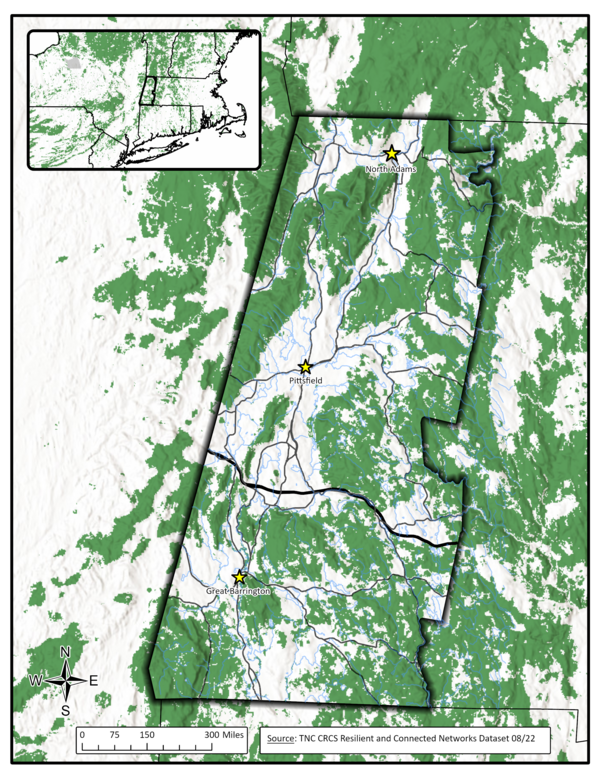The Berkshire landscape is at the heart of a much larger ecosystem, from the Hudson Highlands to Canada. Land protection here helps wildlife through the larger landscape.
These protected lands, open to the public for recreation and the pure enjoyment of nature, offer sweeping views of forested ridgelines, diverse wetlands, streams, and rivers that abound and make up the signature landscape of the Berkshires.
While we all want to enjoy the outdoors in spaces like this as much as possible, there’s another aspect of BNRC’s conservation work that is critical to the landscapes we love.
In recent years, research led by The Nature Conservancy has demonstrated the important role the Berkshire landscape plays in the ability of plants and animals to adapt to our changing climate. Animals, like moose, don’t acknowledge boundaries—they wander across state and county lines. Plants and trees, like sugar maples, are shifting their ranges as temperatures warm.
In fact, the Berkshires are a critical part of the forested corridor that stretches north along the Appalachian Mountain chain, from the Hudson Highlands, through New England, and into Canada.
The 23,000 acres BNRC stewards in its reserves and conservation restrictions, along with the lands protected by the many state forests and local land trusts, all contribute to creating this connected and resilient landscape. It is the diverse topography, bedrock, and the soils that underlie these protected lands that enable plants and animals to move to new territory in response to climate change. This landscape also provides benefits such as improved air and water quality, carbon sequestration, and better soil health.
As we appreciate and enjoy the Berkshires for all the natural beauty surrounding us, it is inspiring to think of how connected we all are to a larger landscape; one that provides for the health and adaptation of ecosystems and people in our rapidly changing world.

